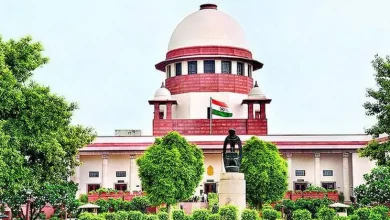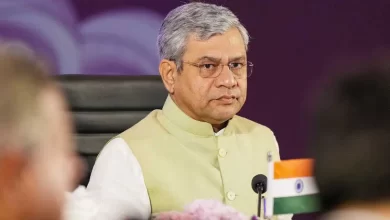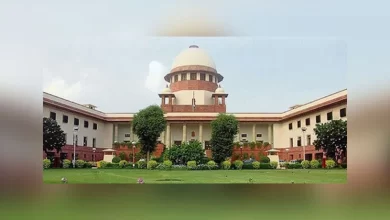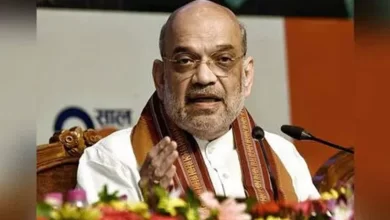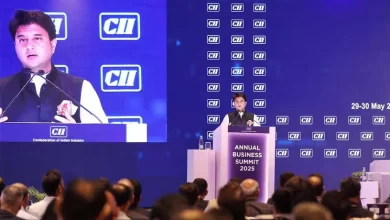China criticises Home Minister Amit Shah’s visit to Arunachal Pradesh
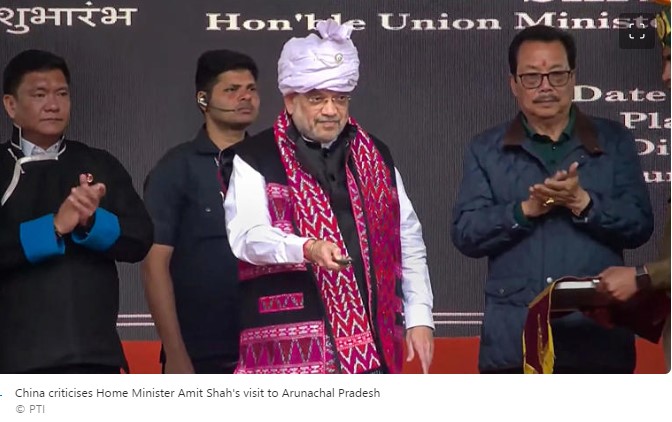
China on Monday criticised Home Minister Amit Shah’s visit to Arunachal Pradesh, stating that it violated Chinese sovereignty over the area, days after India slammed Beijing’s move to rename some places in the border state in an attempt to stake its claim over the area.
While there was no immediate reaction from New Delhi over the Chinese foreign ministry’s strong reaction over Home Minister Shah’s visit, India routinely rejects such objections by China to visits by its leaders to Arunachal Pradesh.
During his visit on Monday, Shah launched ‘Vibrant Villages Programme’ from Arunachal’s border village Kibithoo, India’s easternmost place.
Responding to a question on Shah’s visit, Chinese Foreign Ministry spokesman Wang Wenbin said, “Zangnan (the Chinese name for Arunachal Pradesh) is part of China’s territory”.
“The activity of the senior Indian official in Zangnan violates China’s territorial sovereignty and is not conducive to peace and tranquility in the border areas. We are firmly against this,” he said at a media briefing here.
Last week, China announced renaming of 11 more places in Arunachal Pradesh in Chinese which they claim as Southern Tibet, evoking a sharp reaction from India.
“We have seen such reports. This is not the first time China has made such an attempt. We reject this outright,” External Affairs Ministry spokesperson Arindam Bagchi said in New Delhi.
“Arunachal Pradesh is, has been, and will always be an integral and inalienable part of India. Attempts to assign invented names will not alter this reality,” he said.
It was the third batch of standardised geographical names for Arunachal Pradesh issued by China’s civil affairs ministry.
China’s renaming of the places in Arunachal Pradesh came in the midst of the lingering eastern Ladakh border standoff that began in May 2020.
Following the standoff, India bolstered its overall military preparedness along the Line of Actual Control (LAC) in the Arunachal Pradesh sector as well.
Last month, External Affairs Minister S Jaishankar said the situation along the LAC in eastern Ladakh remained “very fragile” and is “quite dangerous” in military assessment because of close deployments of troops of both sides in some pockets though “substantial” progress has been made in the disengagement process in many areas.
The Indian and Chinese troops are locked in a nearly three-year confrontation in certain friction points in eastern Ladakh even as the two sides completed disengagement of troops from several areas following extensive diplomatic and military talks.
India has been maintaining that its ties with China cannot be normal unless there is peace in the border areas.


